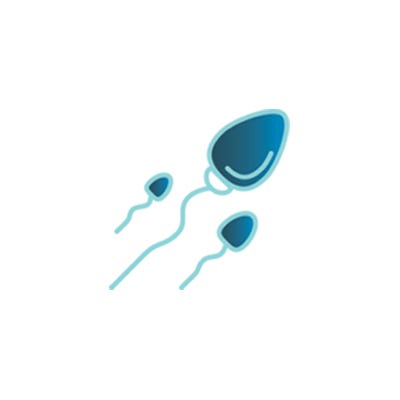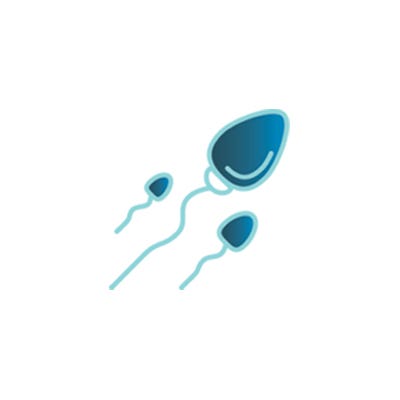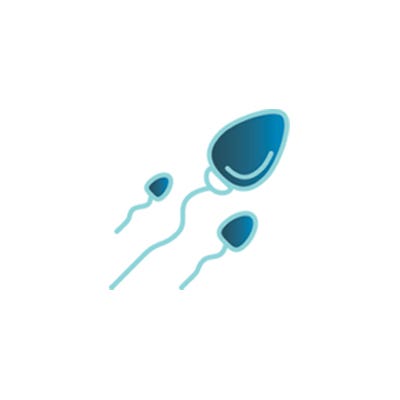A gay man is challenging Canada's sperm donor rules in court
In Canada, men who have sex with men have to abstain from sexual activity for three months before they can donate sperm. A Toronto man says that is discrimination, and he's decided to fight.
6 minute read
A Toronto man has launched a constitutional challenge over Canada's sperm donation regulations. He says the rules discriminate against him on the basis of sexual orientation.
The man, identified as "Aziz M," is gay. According to the regulations, a "man who has had sex with a man in the preceding three months" can't donate sperm to a sperm bank.
M filed his court challenge on January 18.
He says in his affidavit that he emigrated to Canada in 2010. Growing up in a socially conservative family, he says he was told it was shameful to be gay. Being gay was also considered dangerous, and he feared for his personal safety.
Before openly identifying as a gay man or becoming sexually active with other men, M donated sperm at Toronto's ReproMed sperm bank. He donated multiple times between 2014 and 2015, the affidavit says.
He says he'd read about shortages of sperm in Canada. He knew that many LGBTQ2S+ people needed donor sperm to create families.
He says he was also interested in the idea of bringing a child into the world. As it happens, one recipient family, a lesbian couple, contacted him in 2021, to tell him that they'd had a daughter from his sperm donation and wanted to be known to him.
That child is now five years old. He says that he sees her about once a month, either visiting her or having her visit him. They go to parks and museums, play together, and talk about books and TV shows. The mothers have invited him to refer to her as his daughter, and he does. In his affidavit he says, "My relationship with my daughter enriches my life and fills me with a deep sense of purpose."
But after coming out as gay, and becoming sexually active as a gay man, M discovered that he could no longer donate sperm the way he had before, in what's officially known as the "regular process" — through a sperm bank and to recipients he didn't know. The only way he can donate this way now is to abstain from sex. (Because banks typically require a commitment from donors to donate for several months or a year, it would mean a lengthy abstention.)
M could still donate to people he knows, either through a sperm bank, in what's known as the "directed donation process," or privately, through Facebook groups and the like. But what he wants is to donate through the regular process, and he argues that it is a violation of his charter rights that he cannot. It is "deeply hurtful, stigmatizing and discriminatory," he says in his affidavit, that because he is a sexually active gay man, he is automatically deemed an "unsuitable" donor.
A great deal has changed in the donor world over the past few years. As recently as four years ago, gay men in Canada were not permitted to donate sperm at all. From the 1980s onwards, as part of an attempt to prevent the spread of HIV, Canada placed a lifetime ban on donations of blood — and subsequently sperm — by any man who'd had sex with a man, even once, since the year 1977.
In contrast to its policies on sperm, however, Canada's policy on blood donation evolved over the years. In 2013, men who had sex with men were allowed to donate blood as long as five years had elapsed since their last sexual encounter. In 2016, that deferral period was shortened to one year. In 2019, it was shortened again, due to better testing, to three months.
Last year, the singling out of gay and bisexual men was dropped altogether from blood donation screening. Instead Canada Blood Services started screening all donors for high-risk sexual behaviour. All blood donors are now asked if they've had new or multiple sexual partners in the preceding three months. If not (and if they meet the other criteria), they can donate. Only those who answer yes are asked follow up questions, such as whether they have had anal sex or are using an HIV prophylactic like PrEP. If they answer yes, they will be asked to wait. (Anal sex has a significantly higher chance per sex act of transmitting HIV, compared to other types of sex. PrEP may cause low levels of HIV to be missed during testing.)
Not long after the rules for blood donation changed from one year of abstinence to three months, the rules for sperm donation changed too. The new regulations for sperm and ova donation came out in 2020. Although they now allowed gay men to donate, they required the three-month abstention that M is objecting to.
He is asking the court to declare this part of the regulations unconstitutional. "I know I'm not the only person affected," he said in a press statement. "I have many friends who are motivated to donate but are surprised to discover that the law prohibits them from donating simply for being gay."
His lawyers say that the sperm donation ban is a clear violation of the charter right to equality, because the regulations apply "a blanket ban on all gay and bisexual men, regardless of individual risk factors."
Canada's justice minister, the respondent in the case, told reporters on Thursday that the issue was "certainly something that we will look at."
Back in 2002, Canada's policy on blood donation was challenged as discriminatory as well, and in 2010 the court ruled. It said that the deferral criteria for men who have sex with men was not discriminatory, because it was based on health and safety considerations. The judge further ruled that donation was a gift, not a right, and that there was no requirement to accept a gift of blood. But she also said that the need for a lifetime deferral period had not been demonstrated.
The need for a three-month deferral for sperm donation, I believe, will be hard to demonstrate too. That's because in the "regular process," all sperm is frozen and quarantined for six months. All donors — the actual people — go through extensive infectious disease screening and testing in advance of donating, and then those people are tested again after the sperm has been quarantined. Only if tests on both ends of the donation are clear will the sperm be released.
That means that even if a donor has an infectious disease when he donates, but it goes undetected by pre-donation testing — so-called "window period infection" — that infection is likely to be picked up during the post-quarantine testing. M's lawyers, and countless others (including me) have pointed this out.
Back in 2019, when the lifetime ban on gay sperm donors was still in effect, but rumours of imminent change were in the air, many of us hoped these unnecessary distinctions would be dropped. When I asked Art Leader, an Ottawa fertility specialist who'd been outspoken about updating regulations, why any special deferrals would be needed from gay sperm donors, he replied, "Good question."
This court challenge should not be necessary. Our new regulations should have been better. Let's fix that now.
Postscript: There is in fact another group that is prohibited from donating due to sexual behaviour: people donating eggs who have sex with men who have sex with men. According to the regulations, egg donors must wait three months after having had sex with any man who'd had sex with a man in the preceding 12 months. Eggs are not subject to a six-month quarantine.
"Who gets to donate sperm?" HeyReprotech, 14 May 2019
Alison Motluk. "Who can donate sperm in Canada? Not gay men." Xtra. 30 May 2019.
"Guidance document: Safety of sperm and ova regulations." 2021.
Rachel Aiello. "Gay man taking Canadian government to court, says sperm donation restrictions make him feel like a 'second-class citizen'." CTV news. 02 Feb 2023.
Correction: The judge in the 2002 case was female. I incorrectly used the pronoun "he" in the original version. I regret the error.




